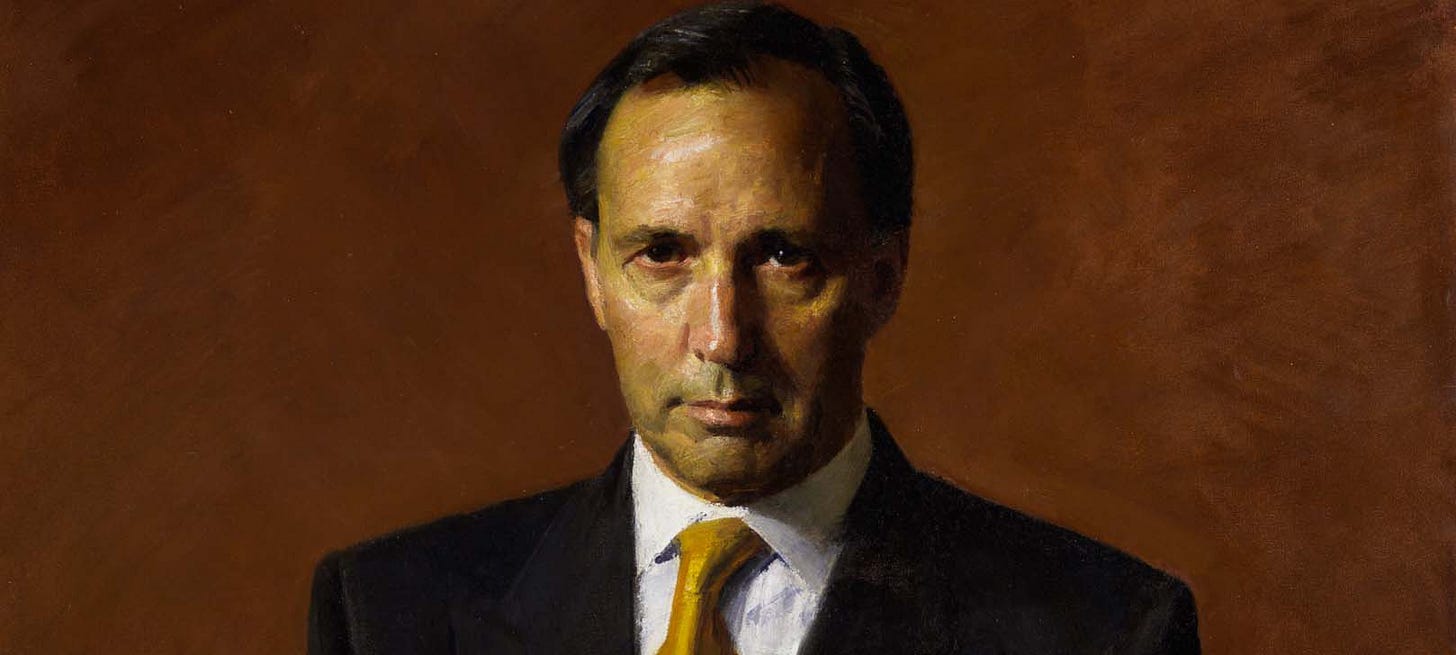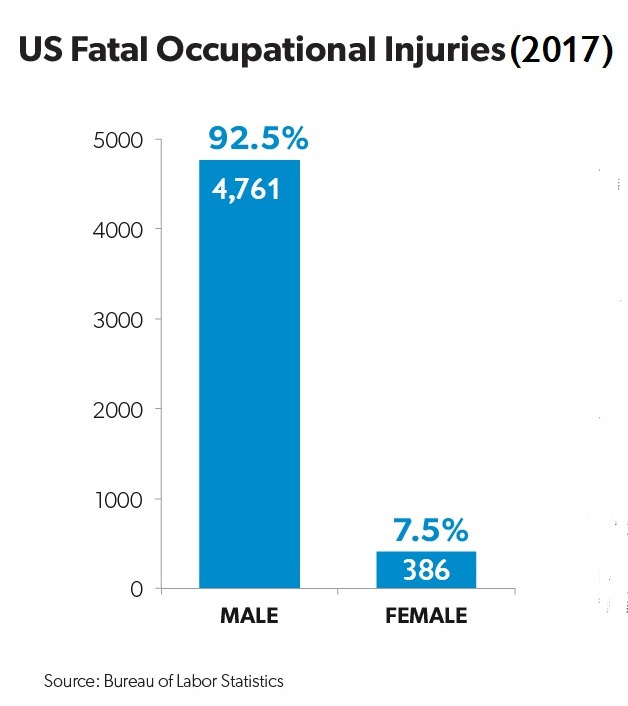Paul Keating's 1970 Maiden Speech
The purported fungibility of women and the female labour GDP dividend
Family life is the very basis of our nationhood. In the last couple of years the Government has boasted about the increasing number of women in the work force. Rather than something to be proud of I feel that this is something of which we should be ashamed.
— Former Prime Minister Paul Keating, 1970
Former Prime Minister Paul Keating is a Labor saint in this country, being a godfather of Australia’s economic deregulation in the 1980s that is credited with launching the boom that hasn’t really stopped. He is also the father of superannuation, and so the patron saint of fund managers all over Australia (thank you St Paul).
He is famous for his acerbic tongue, even as that has served to only exacerbate the bad smell that accompanies Prime Ministers after they leave office. Former Spanish PM Felipe González (1982-1996) said that former presidents and PMs are “like Chinese vases in a small apartment”: nobody is willing to throw them out, but they are a hindrance above all.
His maiden speech to parliament made on 17 March 1970 was surprisingly difficult to find — I have it thanks to Twitter anons — and I am cynical and conspiratorial enough to think it was not so by accident. But what a speech. Yes, some boilerplate thanksgiving and electoral belly rubbing and contemporary political sniping. But also some shocking subversion and prophesy. I’d like to share parts with you. Some are just funny. But others are a striking window into the past, not just of this nation but of much of the developed — or at least Anglo — world.
Sydney might be the most naturally beautiful major-ish city in the world, but Paul Keating’s electorate of Blaxland in Sydney’s western suburbs is not. And — wonderfully — that is one of the first things Keating admits:
Like one or two honourable members who made their maiden speeches in this House last week, I would like to be able to describe my electorate as a scenic district, as something of beauty, but unfortunately I cannot.
After asking for more funding for his electorate (to remedy the various ways it is not a thing of beauty), Keating asks for a “prices authority to fix prices for all goods and services” to manage inflation and “spiralling cost of living” (yes apparently that phrase was already well flogged by 1970).
But then this really caught my eye. I bold the parts I want to dwell on, but I lay them out in full context for fairness below:
The other basic social ill facing Australia - it is a by-product of the situation to which I have been referring - is the problem of workers having two jobs. How many men are working at two jobs? I am not sure whether such statistics are available. How many men are working 60 hours a week? Would we not all agree that the 40 hour week is a joke? The 35 hour week is an even bigger joke. It is bad enough for the working man to be dragged away from his home at night when he should be with his wife and family but it is even worse when he has to send his wife out to work in order to make ends meet. The honourable member for Adelaide referred to the exorbitant cost of housing and to the restrictions placed on young married couples seeking to buy a home. Husbands have been forced to send their wives to work in order to provide the necessaries of life. Young mothers have been forced out of their homes by economic pressure. We must not forget that this Government has been in office for 20 years. It has had the duty and the opportunity to rectify the present situation. Family life is the very basis of our nationhood. In the last couple of years the Government has boasted about the increasing number of women in the work force. Rather than something to be proud of I feel that this is something of which we should be ashamed. The shortsightedness of the Government’s policy was borne out by the headlines in this morning’s newspapers. The number of unfilled jobs has increased by 6% while the unemployment figure has fallen by 10%. How can we have national growth without people? How can we survive without a population? Is this Government doing anything about child endowment? Is it doing anything to put the working wife back in her home? It is not. It engages in a lot of claptrap. It denigrates the Labor Party for its constructive proposals.
The Government hopes to be able to offset the present population situation by immigration. It is time we considered the enormous cost of bringing migrants to this country. We must bear in mind this cost when we consider the cost of subsidising Australian families. We could have a system of subsidies paid to families on a sliding scale according to the number of children they have. For example, on the birth of a fourth child $1,000 might be deducted from the mortgage on a home; $1,500 on the birth of a fifth child. These figures may sound high but they are not when we compare them with the cost of bringing migrants to this country. After all, the best migrant is the infant Australian.
We do have the data, and workers on average have been working less over time — up until and since Keating’s speech:
But Keating was obviously right about women working more. Some charts from the Productivity Commission show the general trend since a few years after Keating’s speech:
Participation rates by typical age groups of parents of children aged under 15 years:
So hours per worker has declined, but what about hours per household (husband + wife)? I haven’t found this statistic published (feel free to share if you have it), but I’d guess eyeballing the charts above that households work a lot more, certainly during the middle peak productive period of life.
Men might be working a lot less over their lives than in the past. In addition to working fewer hours per week on average during middle life, they probably start working later (more schooling years) and live longer in retirement. I say might because how much of the decline in working hours is a composition effect? Men may be working the same but with more women in the workforce (working fewer hours?) the overall decline may just be a reflection of that. (Comment with the answer below if you know.)
Not so for women. Women now work a lot more in that middle part. Probably partly explains the declining fertility rates. But this is good for the economy — all those smart women doctors and lawyers and engineers now contribute their talents. A meaningful part of the GDP dividend we’ve experienced over the last half century or more is likely from this boost in worker participation. Some of the GDP boost is purely statistical though, measuring the shift from unpaid to paid labour. The mother’s care is not counted in GDP but the (government subsidised) paid childcare worker’s is. The caring mother might now outsource to the childcare provider — which by regulation is about 1/6th of another (usually) woman. And if that woman has two kids on average who need care while she works….1
This isn’t all a merry-go-round — the benefits of comparative advantage and specialisation mean we’ve generated a net benefit from this trade. One woman whose comparative advantage is childrearing can do that, while the mother can be a lawyer or whatever.
But this assumes women are fungible. That mothers are fungible. Which they’re not. I’ve noted before how it’s funny how kibbutz socialism and modern capitalism converge on treating parents / children as fungible in favour of increasing worker participation.
We might consider mothers choosing to work over raising their children as revealing their preference for work. Except this is distorted by subsidising outsourced childcare. And if, as Keating says, “[y]oung mothers have been forced out of their homes by economic pressure.” Mothers need to work to pay the rent or mortgage which have been driven up by more double-income households bidding them up. A vicious cycle. Not surprising that women (in the US at least) have been reporting declining happiness since the 1970s.
I’m not sure if this was ever really debated but if it was the debate has long been lost. Certainly if you google Keating’s speech the only hits I got originally were those accusing it of being chauvinistic. No doubt his phrasing (“even worse when he has to send his wife out to work”) didn’t help.
With construction and mining companies increasingly reporting the gender mix of their workforces (ESG!), there are more calls to literally send women to the mines. Some of the results are more prominent than others — such as whatever cursed pact between unions, employers and immigration regulators has flooded roadworks with Irish lollypop ladies.
Of course, we still do not expect women to fully participate in these kinds of jobs:
I suspect a lot of the discourse is driven by intra-elite competition. That is, elite women seeking more prestige and prestigious jobs. Hence the focus on company board roles in public discourse and things like ratio of women among law firm partnerships. These are the internecine battles of multi-millionaires not coal miners. And this tail wags the dog.
The surge in female labour participation has also tracked with the decline in community. If women are primary nodes in social networks then when they’re at work those networks degrade. (This is not that satisfactory — union membership, for example, was always male dominated and has declined.)
So increased female labor participation — another way of spelling “getting mothers out of caring for their children and into the mines” — might explain:
— a meaningful part of the total GDP growth since 1970s
— declining fertility rates
— declining civil society participation
I say “might” because it’s hard to untangle causation, and things like declining fertility rates seem to also be affecting places like Iran that have a very different cultural and policy framework. There’s a nice congruence to Keating’s story, but maybe it’s more complicated. I’m not an economist.
And you can put this sentence in the “things Australian politicians can’t say anymore” bucket:
the best migrant is the infant Australian.
Keating finishes his speech meditating on the “Government’s stupidity” with respect to its defence policy and the short termism that dominates its procurement decisions. Some things really never change.






It would be nice to be able to push a button and create a norm of early family formation and then later on mothers returning to the out-of-home labor force. This is NOT because I think low fertility is per se a problem, but I think it may be a result of a lot of individually small disincentives to family formation. Like policies that make housing more costly than it needs to be
I have to disagree about immigration, though. I think seeking out ambitious educated/educatable people is all to Australia's good. I wish the US did that.
Hi Misha,
I think it's also worth highlighting the impact increased two-parent labour participation had on family income inequality, which I think had significant downstream impacts on society cohesion (although less so in Aus, because there are fewer poor people/per capita in Aus compared to many other Western countries).
- given the legibility of income/labour status, there is now more assortative mating based on income (compared to other traits sought after in the past)
- if you value homemaking as being equivalent to X salary, then attributing nearly every homemaker with the same "salary" effectively compressed family income inequality by close to half.